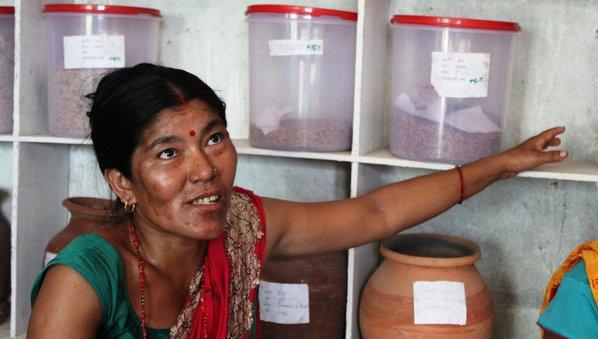Blog Crowdsourcing Nepal's seeds

In a recent blog post, SciDev.Net highlights Bioversity International and LI-BIRD's crowdsourcing idea in helping rebuild Nepal's earthquake-destroyed seed system.
In a recent blog post, SciDev.Net highlights Bioversity International and LI-BIRD's crowdsourcing idea in helping rebuild Nepal's earthquake-destroyed seed system.
According to the Food and Agriculture Organization of the UN's assessment, about 60% of the food and seed stocks in farming households have been destroyed in Nepal’s six most earthquake-affected districts. Nepal government’s National Planning Commission and the International Centre for Integrated Mountain Development, Kathmandu, estimated that in July the total demand for seeds for transplantation in affected districts to be worth US$ 1.13 million.
While community seedbanks outside the 14 earthquake-affected districts are being tapped, Bioversity International scientists are concerned about the seeds that are being rushed in. “Supplying people with seeds of unsuitable crops and varieties will result in poor harvests, waste scarce labour and land and extend the period of food insecurity,” said Bhuwon Sthapit and Devendra Gauchan, senior scientist and national programme manager respectively at Bioversity International in a report published in July.
Bioversity International researchers involved in the tried-and-tested 'Seeds for Needs' initiative suggest we turn to the crowdsourcing option: involve the farmers themselves in multiplying and supplying the seeds appropriate for their needs and environment.
Read more on SciDev.Net
